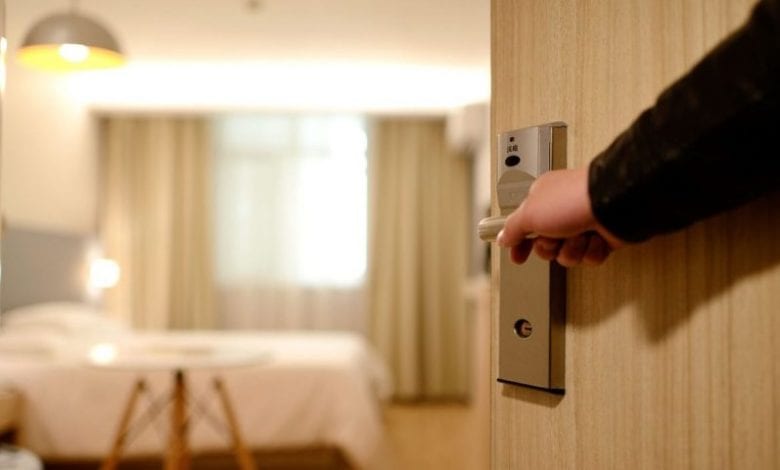Why independent inspections in modern hospitality need to be changed

When was the last time a guest complained that there wasn’t a separate dressing table in the bedroom? Or that there wasn’t a bible in the top drawer? Guest allegiance has switched from identikit, get what you pay for, rooms, to experiential, unique and innovative hospitality practices; they no longer grumble that the last place they stayed in had furniture items that you don’t, but they will comment if your hospitality is not welcoming or your offering isn’t as advertised. It’s the era of user-generated content and having your say, when visitors search for a ‘home away from home’ that has the added extra flourishes of good service and better amenities. So if guest expectations have changed, why haven’t the inspectors who visit?
When I first started out in the industry, hoteliers and guests alike focussed on the star grading of the property; the independent validation that the hotel was of a specific standard. It was a time of safe decision-making, where a star grading equated directly to the amenities that would be on offer, and guests decided the trade-off between the price they were willing to pay and the facilities they would expect. It was a very linear transaction and while some aspects such as service were subjective, the majority of expectations focussed on an objective list. Since then, the industry has shifted, with the likes of TripAdvisor supporting a new era of innovation and excitement, and a shift in the way and how of guest travel. So why when the industry has so obviously and significantly shifted, have the inspection criteria stayed the same?
This steadfast dedication to tradition has led largely to the demise of traditional independent inspections, with hoteliers relying more on their online reviews than on an independent assessment to monitor and improve performance. Common criticism of the star grading system include that it is annual and not real-time, that it is not representative of the customer experience, that it is unnecessary, and that it oversimplifies the customer expectations. Yet what these criticisms overlook is that without independent assessments in one guise or another, the industry is vulnerable to non-compliant, inexperienced and under-priced operators capitalising the market, with no regard for guest safety.
So how do we blend customer expectations with the benefits of an objective, annual, independent assessment? Accommodation providers have long been ‘shoe-horned’ into an archaic star-rating scheme, purchasing a certain number of items of furniture for each bedroom to comply with the standards, having a bible in the room, offering valet parking, and providing an evening meal, all in order to reach the ultimate goal of achieving more stars. This totally disregards both the business case – is it financially viable and relevant – and the consumer wants as to whether something is even relevant for the business. Even some of the country’s best accommodation with a first-class service and lavish bedrooms in a stunning setting, cannot be awarded that illustrious five-star rating purely because they do not have a lift. Similarly, some of the country’s most unique properties such as luxury treehouses or design led boutique B&B’s cannot be graded because they don’t fit in with the old-fashioned prescribed standards.
I don’t believe in the star rating anymore, or at least not how it has been marginalised by lack of development, over grading (as a commercial motivator) and under grading where prescriptive physical and service standards apply. Consumer demands and expectations, as well as the sheer range of types of properties on offer have evolved drastically since the traditional grading system became a benchmark of excellence, and it’s about time that regulations moved with the times. And this is exactly what we have set-out to do at Quality in Tourism; to revolutionise and make relevant the inspectorate again, so that it complements and enhances consumer feedback.
So what has changed?
Quality in Tourism is on a mission to provide customers with the practical and relevant information that they need, and which they do not have the knowledge or experience to assess themselves. We are all guilty of assuming that the accommodation we find online is automatically compliant with necessary standards such as fire safety, insurance etc. Yet in an unregulated industry, this is not a fair or straightforward assumption; we only have to look at the news for concerning stories of fires, disease and sickness from apparently reputable places. The new annual assessments will assure consumers that the basic Safe, Clean and Legal principles are fulfilled, with a grading scheme in place that is of real worth.
As part of our aim to introduce a flexible and useable tool for the industry, the new scheme is applicable to all types of accommodation, from yurts to converted railway carriages as well as the traditional accommodation types including hotels and B&Bs. We are moving away from the prescriptive old scheme that forced properties to comply with outdated standards towards a scheme which incorporates experiential considerations into its new assessment structure. Sites like TripAdvisor provide a wealth of subjective reviews but lack the ability to review the safe and legal aspects of a property, a factor that consumers state is the bare minimum standard of any place they plan to stay. Our new scheme combines both.
We have of course been asked how an inspector can possibly compare a yurt to an established large-scale hotel, but this question comes from the legacy of old criteria. There’s no way you can compare a hotel with a yurt when your expectations are for two bedside tables and a bible; but when you’re ensuring guests of objective factors such as safety and compliance, and objective factors such as hospitality and welcome, the physical space becomes less of a consideration and it becomes much easier to assess and evaluate. The biggest hurdle we face is not how to inspect, but in the education of industry and consumer to understand the shift, and to stop evaluating experience on a linear scale (3 star, 4 star, 5 star), but on an overall assessment of quality. This education will happen naturally over time, and we are accelerating understanding through relevant partnerships and promotions.
What’s been the response?
Hugely positive. Thanks to partnerships with DMOs such as VisitCornwall and Visit Isle of Wight, we have successfully trialled the new schemes, completing more than 1,000 property inspections under the new scheme. The most gratifying thing has been the positive feedback, with hoteliers feeling their business has been understood at face value rather than with a blinkered view. We’re confident that the national roll-out of the scheme will be hugely successful, and that businesses and consumers alike will start to reap the rewards of a fit-for-purpose, modern assessment.
Case Study: Watergate Bay Hotel, Cornwall
Watergate Bay Hotel in Cornwall is a very modern operation. Working with local partners it offers visitors one of the best beachside experiences in the country. Historically, the hotel has selected not to be graded, as it believes that its brand of hospitality doesn’t fit with the traditional assessment standards. The Watergate Bay team has also worked hard to become a contemporary beach-lifestyle destination so have questioned why they would want to align themselves with more traditional graded properties in the South West. The inspections offered no scope for the variety and uniqueness of their product, so why then would they pursue independent assessment?
Will Ashworth, MD, Watergate Bay said: “We understand the importance of grading systems. It gives guests the confidence of knowing that hotels has been verified by an independent organisation and are delivering an experience that matches their marketing and is being run properly. However it is clear that these grading systems don’t always keep pace as the hotel industry evolves and guest’s expectations change. In some cases these systems are no longer of benefit to hotel or guest.”
As part of our partnership with VisitCornwall, a Quality in Tourism assessor visited the hotel and identified that under the newly launched assessment scheme it would, unsurprisingly, receive five stars. The hotel is an exemplary example of what modern hospitality should be and should offer, but a traditional grading had no room for its uniqueness. Ignoring the star grading for the moment, under the newly launched quality assessment, we were able to account for and incorporate the hotel’s innovative approach to food provision and the local economy.
Under the common standards, the hotel would have been downgraded on the basis of ‘full provision’ (their restaurant isn’t open all the time), but the hotel’s approach was to instead partner with and recommend local restaurants within the vicinity, including the Beach Hut and Jamie’s Fifteen restaurant. For the guest, the outcome is the same; excellent food, in close proximity to the accommodation and a unique local experience. For the hotel, the approach is very different, saving on unnecessary overheads during quieter periods, and doing their bit to support the local economy. A win-win and something we’re glad our new standards can now recognise.
Ashworth continues: “We want to put the guest experience first and the new schemes from Quality in Tourism act as a guide to give guests relevant information to choose the right hotel for them.”
Case Study: Merchant House, Cornwall
Despite an exemplary online reputation, positive client feedback and a central-Truro location, Merchant House has always been limited under the common standards by its lack of restaurant and dinner, despite guest feedback that it just isn’t needed. Merchant House has loads of well-reviewed restaurants, bars and eateries within a five minute radius, yet this lack of restaurant forced the ‘Hotel’ to represent itself as ‘Guest Accommodation’ not ‘Hotel’, when the potential guest has no understanding of the difference between the two.
“We are currently graded as “Guest Accommodation” with our local Tourist Information Scheme, as we offer much more than a B&B including a licensed bar, however cannot be graded as a Hotel as we do not have a restaurant to offer evening meals. Therefore we have found the Quality in Tourism Scheme will work well for us to help support the type of Accommodation we offer.” Nicky Whittaker, Merchant House.
The property is stylish and sympathetically refurbished, with stand-out service, superb breakfast, and provides complimentary tea or coffee and homemade cake for guests. Merchant House hasn’t been reflected accurately and has been hugely undervalued under the old scheme. The only reason that the property hasn’t been able to market itself as a ‘hotel’ is because it doesn’t serve dinner. However, it has restaurants on the doorstep, and I for one am sure it is a wise commercial decision to swerve the cost of operating a full-service kitchen when your customers mostly eat out.
In the new Quality in Tourism schemes, we don’t believe in forcing providers into a category; we believe how they market themselves is entirely up to them – as long as they are transparent in what they are offering then the quality and service will be graded accordingly. Disruptors in the industry have changed the rules, it’s time we changed them too.
For those wanting to demonstrate their commitment to compliance and standards, or seeking to gain insight into their business, Quality in Tourism has launched a new set of independent assessments, as well as a new Safe, Clean & Legal marque to highlight compliance. For more information visit www.qualityintourism.com. If you have any comments on the article, please direct them to our team.
By Deborah Heather, director of Quality in Tourism









